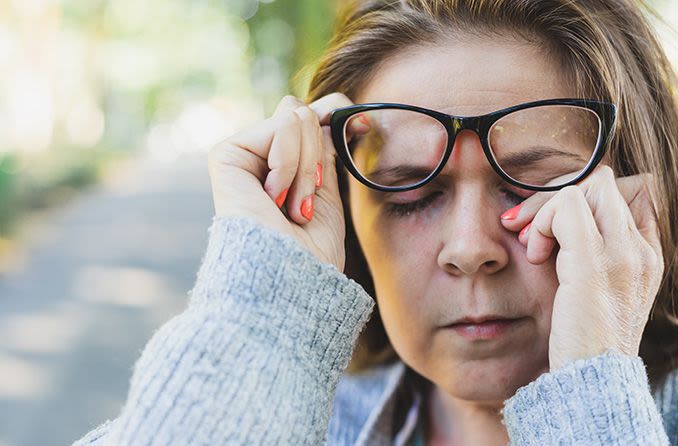How to avoid germs on your glasses (and don’t share your eyewear)

How can you avoid germs on your eyeglasses? Wash your hands and clean your glasses regularly.
That’s the short answer. But how do germs get on your glasses in the first place? And how do you get them off your specs?
Let’s get started.
How do germs get on your glasses?
Eyeglasses are a magnet for germs, especially when you’re out and about. If you’re like most people, you put down your readers on — and pick them up from — tables and other surfaces touched by multitudes of hands through the day.
In the process, you’re transferring pathogens — those organisms that make you sick — not only to your glasses, but also to your hands each time they touch your glasses. If you rub your eyes when you take off your glasses, you’re putting that bacteria right into your eyes.
Your hands carry more germs than any other part of your body, the Vision Eye Institute says. When you rub your eyes, you transfer those germs to your eyes — a warm, moist environment that’s like a petri dish for germs. Your eyes are directly connected to your vascular system.
Your eye-rubbing habit can cause eye infections like conjunctivitis (pink eye), as well as transferring other infectious diseases from your glasses to your body.
A better habit to adopt instead: Clean both your hands and your glasses regularly, no matter where you are.
READ MORE: DIY Eyeglass Cleaner
How do you disinfect glasses?
Some people swear by rubbing alcohol or keep sterilizing wipes on hand for this purpose, but neither will leave you with crystal clear lenses. You could even risk damaging your lens coatings.
Huffing the mist of your breath onto your lenses and wiping off the moisture is not the most effective way to clean glasses and it definitely won’t disinfect them.
The most effective and safest way to clean your eyeglasses is with good old soap and water. If you want to eradicate bacteria and germs, remember to wash every part of the eyeglasses, including arms, rims and nose guards.
Run the glasses under warm water, apply a drop of liquid soap or detergent, clean with your fingers, rinse thoroughly, and dry them with a soft towel. That should leave your glasses good as new and germ-free.
Avoid drying your glasses with paper towels, which often have a rough surface that can scratch your lenses. Likewise, wiping your lenses with the sleeve of your shirt or sweater can leave fine scratches and fibers.
You’re usually safe using a microfiber cloth designed to clean glasses, but make sure to keep those cleaning cloths enclosed in a zip bag and launder them regularly.
Keeping eyeglasses in a case that zips or snaps shut also helps to keep them clean, undamaged and germ-free.
Does glass carry germs?
Glass and plastic can carry germs if left uncleaned, but only wet glass is a breeding ground for germs because bacteria needs moisture to grow.
Keeping your eyeglasses clean and dry will halt the growth of pathogens, but until you get around to cleaning them, pathogens can still be transferred to your fingers and eyes.
For this reason, do not borrow someone else’s eyeglasses. And don’t even think about wearing someone else’s contact lenses.
How do you get rid of a cloudy film on glasses?
Mineral deposits can build up on glass if you live in an area with hard water. One way to test if your glasses are carrying a buildup of the calcium and magnesium in hard water is to wipe the lens with a little white distilled vinegar.
If the cloudiness disappears, you’re likely dealing with hard-water mineral buildup. Try adding some of the vinegar to the warm soapy water you use to clean your glasses, but proceed with caution. If your glasses have a anti-reflective coating, you won’t want to do this too often.
In most cases, even hard water won’t leave noticeable traces on your glasses if you use a bit of detergent or liquid soap to clean them and then dry them well with a soft towel.
ARE YOU TAKING PROPER CARE OF YOUR GLASSES? Find an optical store near you or online and ask an optician.
Page published on Friday, January 10, 2020






